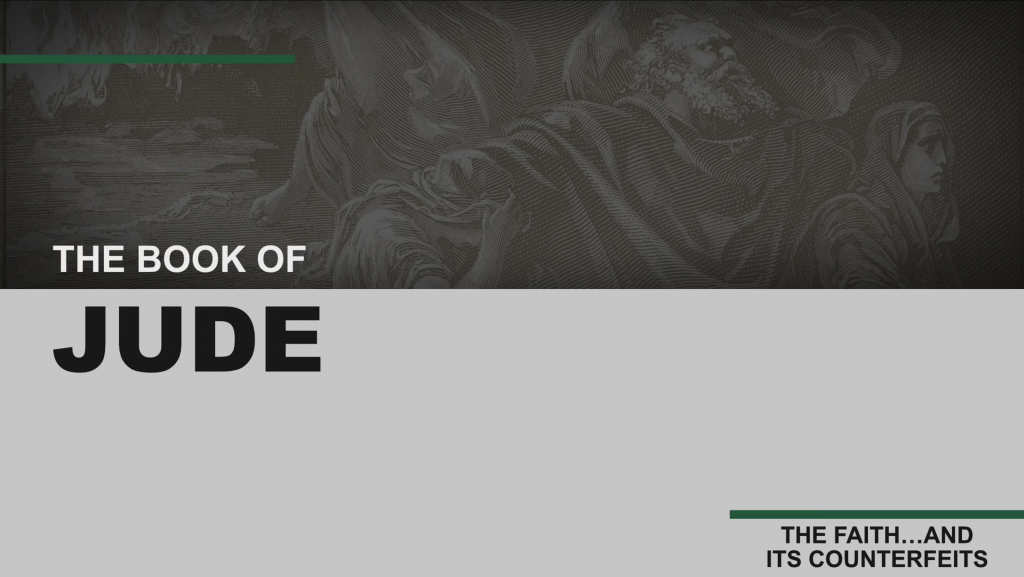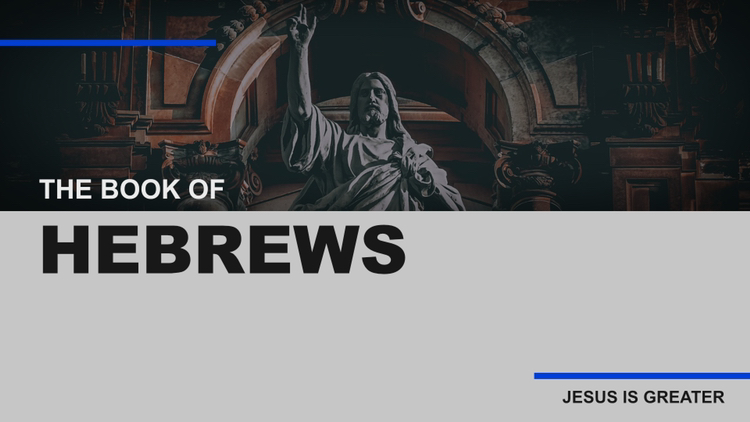
Jude
4 For certain people have crept in unnoticed who long ago were designated for this condemnation, ungodly people, who pervert the grace of our God into sensuality and deny our only Master and Lord, Jesus Christ. 5 Now I want to remind you, although you once fully knew it, that Jesus, who saved a people out of the land of Egypt, afterward destroyed those who did not believe. 6 And the angels who did not stay within their own position of authority, but left their proper dwelling, he has kept in eternal chains under gloomy darkness until the judgment of the great day— 7 just as Sodom and Gomorrah and the surrounding cities, which likewise indulged in sexual immorality and pursued unnatural desire, serve as an example by undergoing a punishment of eternal fire.
In a seminary chapel service at a school in New Jersey, a Lord’s supper service is held. In this service a hymn is sung to a goddess named Sophia instead of to Jesus. Some of the words sung to this goddess include:
She’s the teacher we esteem,
And the subject of life’s theme.
Lover, counsel, comforter,
Life is gladness lived with her.
One person present at this service recounted how the minister “then offered the invitation to come to the Lord’s Table, not in the Lord’s name, but in the name of the goddess who was speaking through Jesus…The Inviter was not the crucified Lord of glory but the Sophia figure who was speaking through him, by her own authority. Ironically, we were being invited to his table, but only so in her name.”[1] The participant got up and walked out with a few others.
A member of one church in Walnut Creek, California, proclaimed, “Every person, no matter their age, sexual preference, gender, or nationality, has the right to have access to the divine, however they see the divinity made manifest.”[2]
An openly gay bishop of the Episcopal Church proclaims that his relationship with his male partner is “sacramental” and sacred before God.[3]
A talk-show host decides to send in some money to a televangelist to see what happens. He then recounts to his shocked and guffawing audience the dozens of letters he receives from the televangelist in return, all of them asking for more money, many of them sending him a few dollars and telling him that if he will send that few dollars back along with a larger gift of $100 or so then he will receive an even bigger blessing. He is also sent strange talismans: supposedly blessed cloths and the like that will allegedly open the treasury of heaven to him. Some of the letters suggest that if he does not respond with more money he is being disobedient.
A famous New Testament scholar argues in print that Jesus did not rise bodily from the dead but rather that his body was likely thrown into a ditch and possibly eaten by dogs. His book is a bestseller. He is celebrated as a great biblical scholar until he retires in comfort.
The editor of a large Christian book publisher is asked (by me) whether or not a person can be a Christian if they felt that Jesus did not bodily rise from the dead but rather that his body was, say, eaten by dogs. He responds by saying that such a person, yes, might be a Christian after all.
I want to talk about the Greek word hairesis. We know this word in its Anglicized form: “heresy.” In his book Heresies, Harold O. J. Brown defines “heresy” as “something that seemed to undercut the very basis for Christian existence.” He points out that “[p]ractically speaking, heresy involved the doctrine of God and the doctrine of Christ—later called ‘special theology’ and ‘Christology.’”[4]
This is important for two reasons: (1) it tells us that heresy is a corruption within the church and (2) heresy is not a synonym for “opinions different from my own.” When I say that heresy is a corruption within the church, I am saying that non-Christian religions and theologies are not heresies, they are rather utterly foreign ideas outside of the church. Heresy, by definition, refers to taking the faith or vital aspects of it and corrupting or distorting them. When I say that heresy is not a synonym for “opinions different from my own” I am saying that you cannot refer to differences of opinion on non-fundamental matters “heresy” even if you might call some of them “error.”
Not every error is a heresy though every heresy is an error.
For instance:
- Precisely how we understand predestination is not fundamentally a heresy issue.
- Precisely how we understand the details of end-times prophesy is not fundamentally a heresy issue.
- Church government is not fundamentally a heresy issue.
- The mode of baptism, while important, is not fundamentally a heresy issue.
- Whether or not Jesus rose from the dead is a heresy issue.
- Whether or not Jesus is divine is a heresy issue.
- Whether or not God is just and good and all-knowing is a heresy issue.
So let us be careful on what we call heresy…but let us also be keenly aware that heresy does in fact exist! The late Methodist theologian Thomas Oden has publicly complained that heresy is simply not even allowed to exist in many of our seminaries today.
It seems worth noting that the liberated seminary at its zenith has finally achieved a condition that has never before prevailed in Christian history: Heresy simply does not exist…No heresy of any kind any longer exists. You cannot find one anywhere in the liberated seminary – unless, perhaps, you might consider offenses against inclusivism. There is absolutely no corruption of Christian teaching if under the present rules all notions of corruption are radically relativized. Not only is there no concept of heresy, but also there is no way even to raise the question of where the boundaries of legitimate Christian belief lie, when absolute relativism holds sway.
It is like trying to have a baseball game with no rules, no umpire, and no connection with historic baseball. Yet we insist on calling it baseball, because a game by that name is what most people still want to see played.[5]
And Philip Lee has asked, “…within the Church, has heresy not become a heretical word?”[6]
No, we must not get rid of the word “heresy.” We must keep it. And we must define it rightly. And we must apply it carefully, but, when needed, boldly.
We lose a lot if we lose the idea of heresy. Not the least of which would be the ability to understand the book of Jude, that speaks of heresy and the need for the church to respond rightly to it.
Continue reading →



